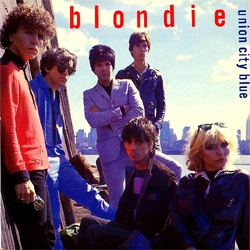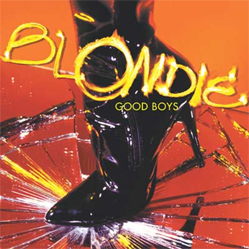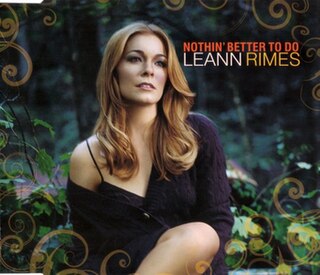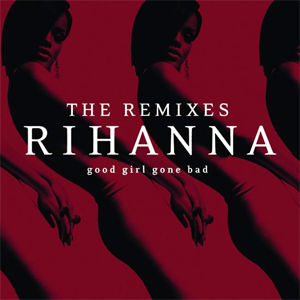
Blondie is an American rock band formed in New York City in 1974 by singer Debbie Harry and guitarist Chris Stein. The band was a pioneer in the American new wave genre and scene of the mid-1970s.

"Call Me" is a song by the American new wave band Blondie and the theme to the 1980 film American Gigolo. Produced and composed by Italian musician Giorgio Moroder, with lyrics by Blondie singer Debbie Harry, the song appeared in the film and was released in the United States in early 1980 as a single. "Call Me" was No. 1 for six consecutive weeks on the Billboard Hot 100, where it became the band's biggest single and second No. 1. It also hit No. 1 in the UK and Canada, where it became their fourth and second chart-topper, respectively. In the year-end chart of 1980, it was Billboard's No. 1 single and RPM magazine's No. 3 in Canada.

"Heart of Glass" is a song by the American new wave band Blondie, written by singer Debbie Harry and guitarist Chris Stein. It was featured on the band's third studio album, Parallel Lines (1978), and was released as the album's third single in January 1979 and reached number one on the charts in several countries, including the United States and the United Kingdom.

"Union City Blue" is a song by the American new wave band Blondie. The song was featured on their 1979 studio album Eat to the Beat. Written by Debbie Harry and Nigel Harrison, the song was inspired lyrically by Harry's experiences while acting in the 1980 film Union City as well as her New Jersey roots. Musically, the song features a drum part composed by drummer Clem Burke.

"Atomic" is a song by American rock band Blondie from their fourth studio album, Eat to the Beat (1979). Written by Debbie Harry and Jimmy Destri and produced by Mike Chapman, the song was released in February 1980 as the album's third single.

"Rapture" is a song by American rock band Blondie from their fifth studio album Autoamerican (1980). Written by band members Debbie Harry and Chris Stein, and produced by Mike Chapman, the song was released as the second and final single from Autoamerican on January 12, 1981, by Chrysalis Records. Musically, "Rapture" is a combination of new wave, disco and hip hop with a rap section forming an extended coda.

"Good Boys" is a song by American rock band Blondie. Issued on August 11, 2003, it was the only single released from their eighth studio album, The Curse of Blondie (2003). The single was released as part of a two-CD set and on 12-inch vinyl. CD 1 features live versions of "Maria" and "Rapture", plus the video for "Good Boys" directed by Jonas Åkerlund. CD 2 features a remix by Giorgio Moroder. The 12-inch vinyl features remixes by Giorgio Moroder, Arthur Baker, and Scissor Sisters.

Rockbird is the second solo studio album by American singer Debbie Harry. It was released in November 1986 by Geffen Records in the United States and Chrysalis Records in the United Kingdom.

"In Love with Love" is a 1987 song recorded by the American singer Debbie Harry. It was taken from her second solo album Rockbird and released as the third single in 1987.

"Backfired" is the debut solo single from American singer and Blondie vocalist Debbie Harry. Released in 1981, it was taken from her debut solo studio album, KooKoo.

"Dreaming" is a song by American new wave band Blondie. Released in 1979, the song was the opening track from their fourth album Eat to the Beat. Written by guitarist Chris Stein and singer Debbie Harry and partially inspired by ABBA's "Dancing Queen," the song also features an active drum performance by drummer Clem Burke, who did not expect the final recording to feature his busy drum track.

"Look on the Floor" is a song by English girl group Bananarama, released in November 2005 as the second single from their ninth album Drama. The song was written by Sara Dallin, Keren Woodward, H. Korpi, M. Wollo, M. Malavasi and S. Micheli, and was produced by Korpi and BlackCell. Contained in "Look on the Floor" is an interpolation of the chorus of the 1983 Italo disco song "Hypnotic Tango" by My Mine.

Necessary Evil, is the fifth solo album by the American singer Deborah Harry. Released in September 2007, it was her first solo album in fourteen years and the first since reformation of Blondie at the end of the '90s.

"I Can See Clearly" is a song by American singer Debbie Harry, released in June 1993 as the first single from her fourth solo album, Debravation (1993).

"Nothin' Better to Do" is a song recorded by American country music artist LeAnn Rimes. The song was written by Darrell Brown, Rimes, and her then-husband Dean Sheremet. It was released on May 29, 2007, as the lead single to her ninth studio album Family (2007) by Curb Records.

Deborah Ann Harry is an American singer, songwriter and actress, best known as the lead vocalist of the band Blondie. Four of her songs with the band reached No. 1 on the US charts between 1979 and 1981.

"What I Cannot Change" is a song written by Darrell Brown, and co-written and recorded by American country artist LeAnn Rimes. The song was released to country radio in August 2008 as the third and final single from her ninth studio album, Family (2007). The song was later supported by a set of dance remixes, released in November 2008. The song reached number one on the Dance Club Songs chart.

"The Real Thing" is a song by American recording artist Vanessa Williams. It was written by Stevie Wonder and was released with a Soul Seekerz dance remix. The song appears on "The Real Thing", Williams' eighth studio album. It was released on June 2, 2009, by Concord Records, as the fourth single from the album.

Good Girl Gone Bad: The Remixes is the first remix album by Barbadian singer Rihanna. It was released on January 27, 2009, through Def Jam Recordings. The album contains club remixes of tracks from her third studio album Good Girl Gone Bad (2007) and its 2008 re-release, Good Girl Gone Bad: Reloaded. The songs were remixed by producers and disc jockeys such as Moto Blanco, Tony Moran, Soul Seekerz and Wideboys. The remixes appear in the form of radio edits instead of full-length versions.

Pollinator is the eleventh studio album by the American rock band Blondie, released on May 5, 2017 by BMG Rights Management.




















